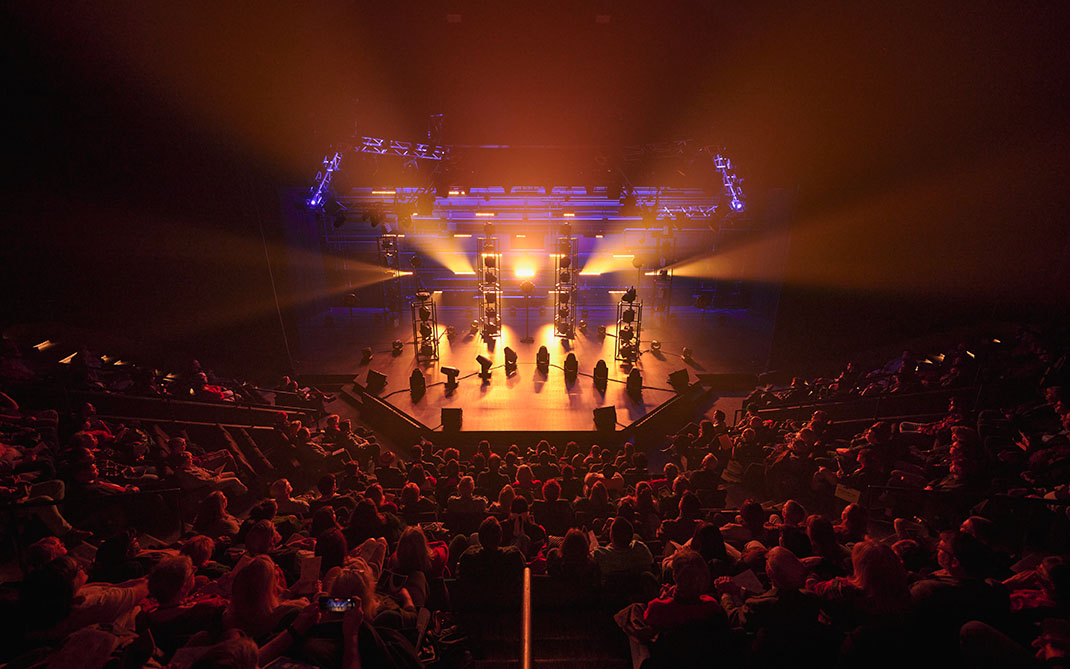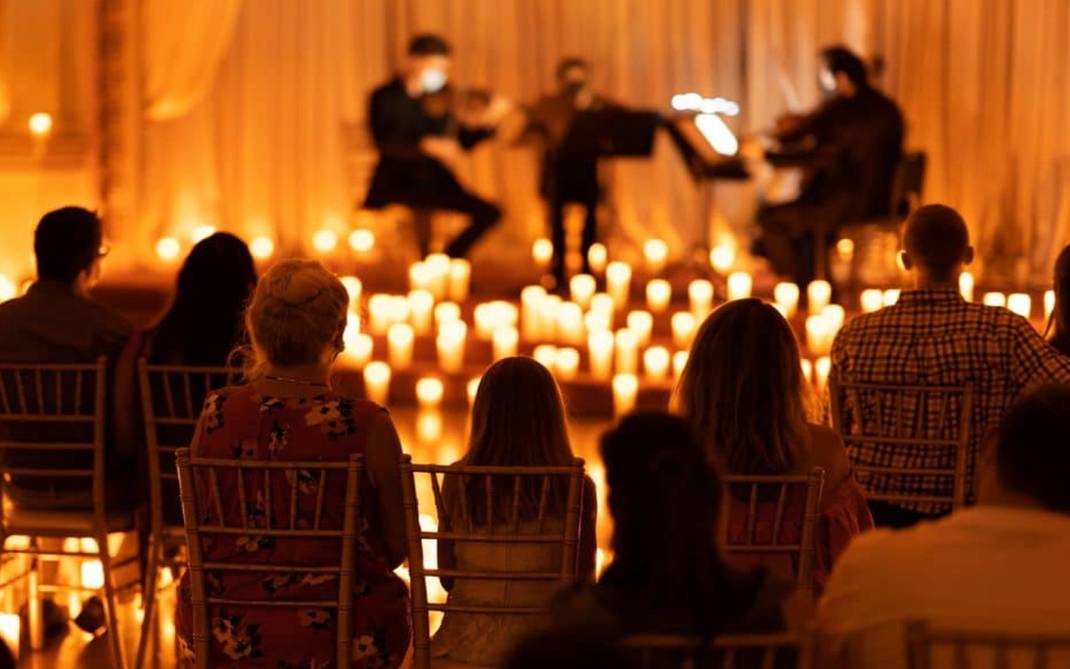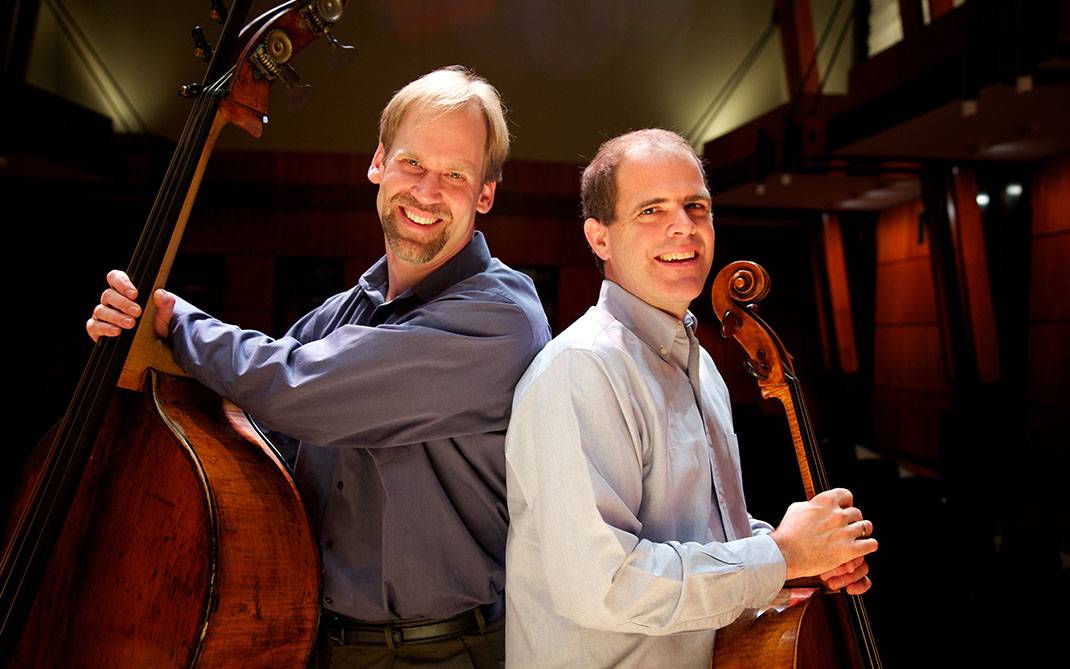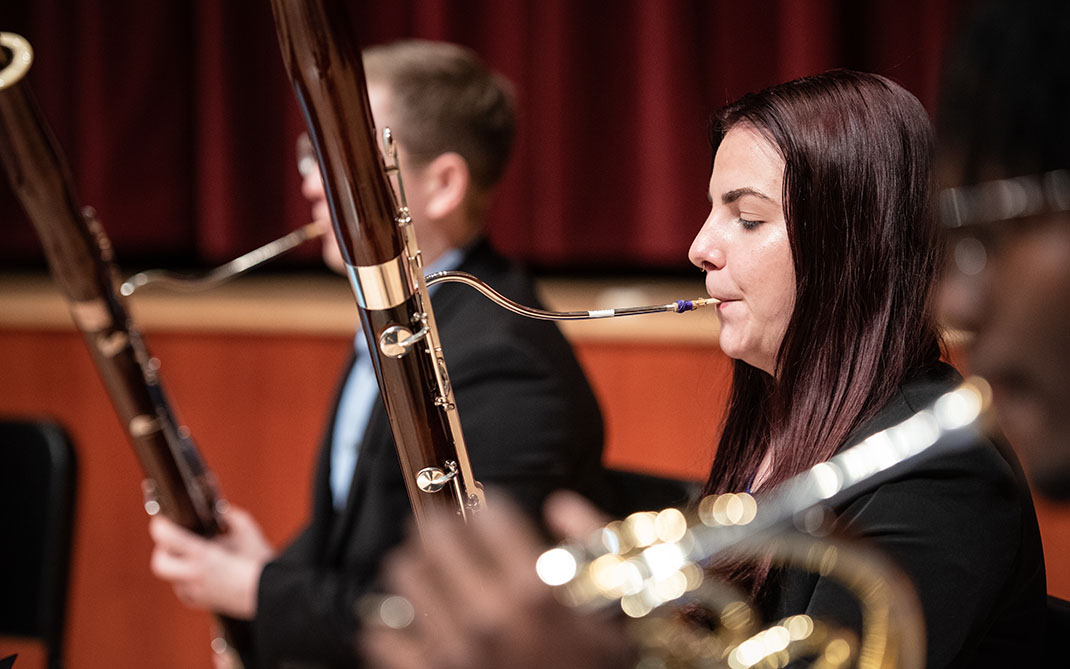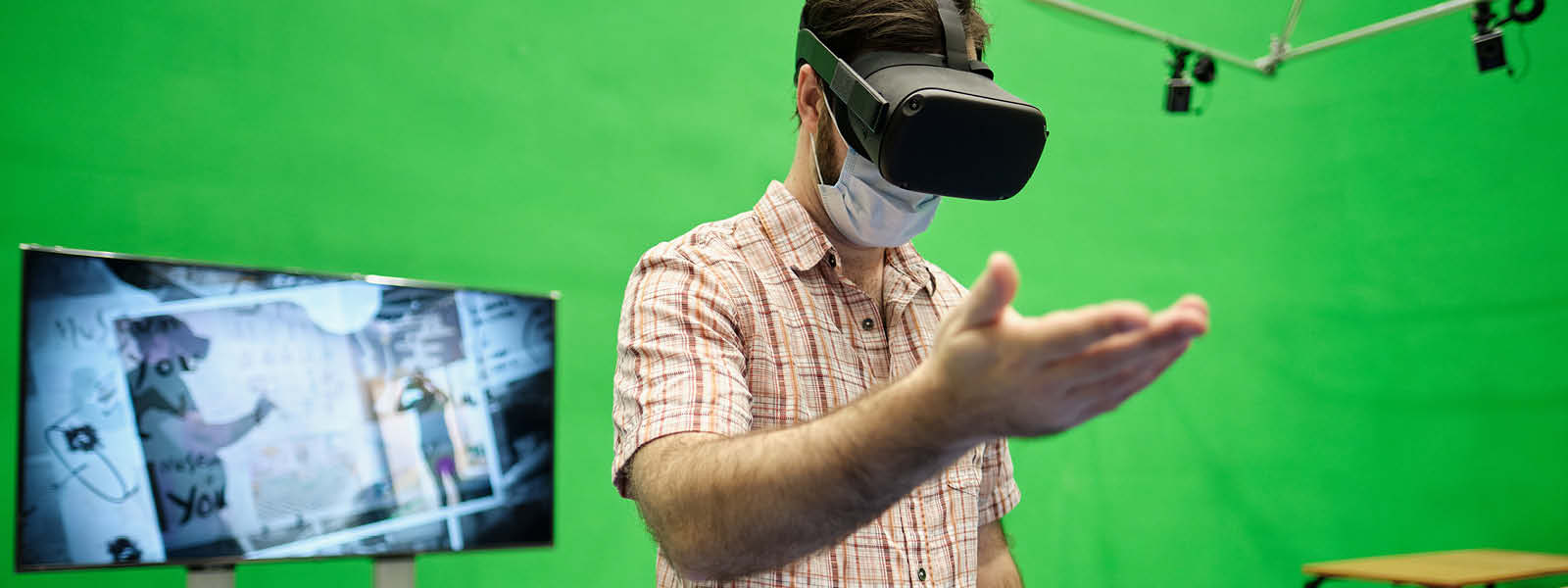Inaugural Immersive Storytelling Residency concludes with launch of "BonsAI"
The inaugural Immersive Storytelling Residency in the Media and Emerging Technology Lab (METL) at UNCSA has concluded with the completion of BonsAI – an immersive narrative experience that was inspired by COVID-19, the global pandemic that also redefined the creative process for the residents.
The six-month residency is the first of its kind in the country, bringing together a technical artist, a software engineer and a screenwriter to create a fully-realized virtual reality experience.
Established in 2017 by the top-ranked UNCSA School of Filmmaking (No. 10 in the U.S. by The Hollywood Reporter), METL is dedicated to defining and shaping the evolution of how immersive story content will be created, consumed and told.
“As one of the few immersive labs in the country to be housed in a professional arts conservatory METL is uniquely situated to train and serve as a resource for the next generation of creative innovators,” said Ryan Schmaltz, who conceived the storytelling residency and has directed METL since its launch. “The residency brings together people with complementary skill sets, gives them room to develop an idea using METL’s technology and resources, and provides guidance and mentorship by key industry experts.”
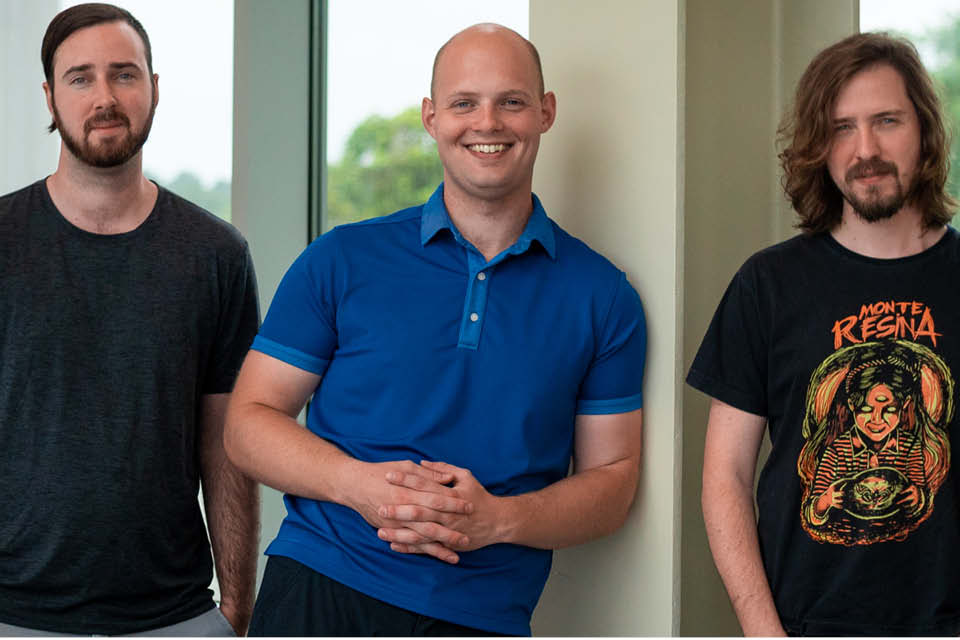
The COVID-19 pandemic inspired the inaugural project in METL's Immersive Storytelling Residency, and also impacted the creative process for participants (from left) Alex Moro, Trent Spivey and Fernando Goyret.
UNCSA will submit "BonsAI" to VR film festivals as well as festivals like Sundance, Tribeca and South By Southwest (SXSW) that have sections devoted to immersive media, several of which have pivoted to online or a hybrid of online and in person, potentially offering an even wider audience for the experience if selected.
METL has received a $25,000 Epic Games MegaGrant that will support the continuation of the Immersive Storytelling Residency program. Applications for the next residency will open on November 1, 2020 and the residency will run May – November 2021.
“BonsAI”
The residency’s first cohort included technical artist Fernando Goyret, software engineer Alex Moro and screenwriter/producer Trent Spivey (B.F.A. Filmmaking '18). While working remotely challenged the processes, the pandemic ultimately helped them zero in on their creative concept, an animated virtual reality (VR) narrative experience called “BonsAI.” Set in the not-so-distant future, "BonsAI" casts the VR participant as the assistant to a top botanist during the rise of a novel plant virus. The participant must step up to orchestrate a solution to the crisis while avoiding the clutches of a nefarious agribusiness.

"BonsAI" users must reverse the effects of a virus destroying the world’s plant life– all while being pursued by their former employer, a shady global agribusiness.
“We were tasked with thinking about how we could use this immersive technology and platform to cultivate empathy and awareness, while still creating an entertaining and meaningful experience — all within about an eight- to 12-minute timeframe,” Spivey said. “We knew we wanted to draw on what people are experiencing right now, but also we wanted to inspire.”
When the pandemic hit, the trio moved from a shared office at the Center for Design Innovation in Winston-Salem, where they also had access to a 3,600-square-foot cube with a 30’ x 30’ industry-grade motion capture environment, into home offices where they communicated by Zoom. The team also pivoted to creating an animated experience, guided by a team of highly experienced mentors, including Academy Award-winning producer Jacquie Barnbrook (“Martian VR Experience,” “Shrek 2 & 3” and “Stuart Little”); and Bob Keen, director of visual effects and immersive media for the School of Filmmaking, who ran his own animation studio in England – with branches in Los Angeles and Toronto - for 23 years.
Other advisors for the residency include Kent Bye, host of nationally-acclaimed Voices of VR podcast; Navid Khonsari, founder of iNK Stories, digital storytelling studio based in New York City; and Zahra Rasool, editorial lead for AJ Contrast, Al Jazeera’s Emmy-nominated immersive storytelling and media innovation studio.
Hannah Myers (B.F.A. '18), a student in UNCSA’s highly ranked School of Drama, voiced Dr. Flora Weatherman, the scientist who guides the participant through the experience. Future residents will have the option of creating live-action experiences, with access to student actors who have been trained in on-camera work.
“Virtual reality effects your mind in a different way,” said Spivey. “You are not just watching something on a screen. You are in the scene. There’s a power in being immersed, in what it can do for the human spirit.”
Get the best news, performance and alumni stories from UNCSA.
SUBSCRIBE TO OUR NEWSLETTERS
September 14, 2020
